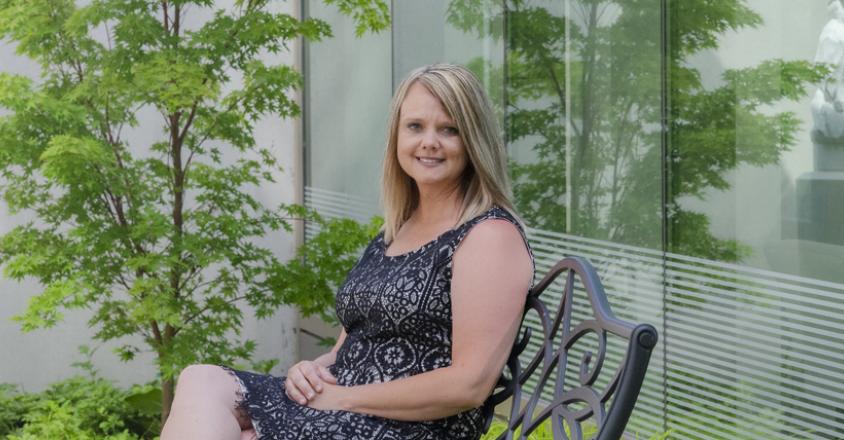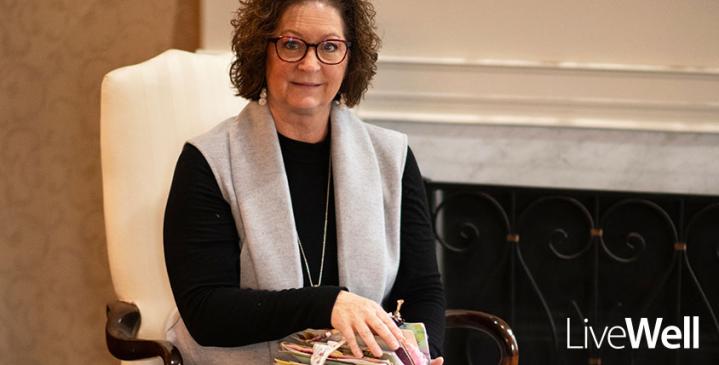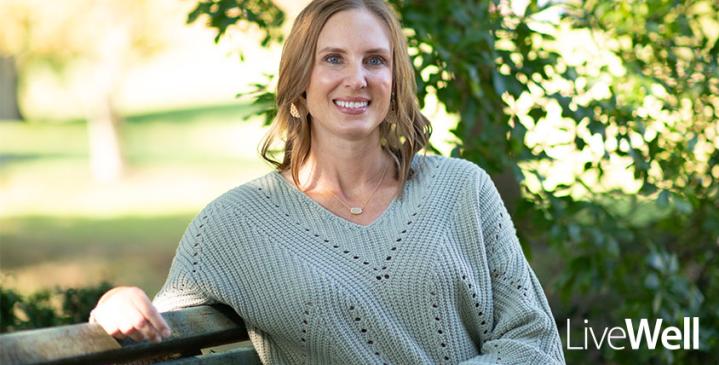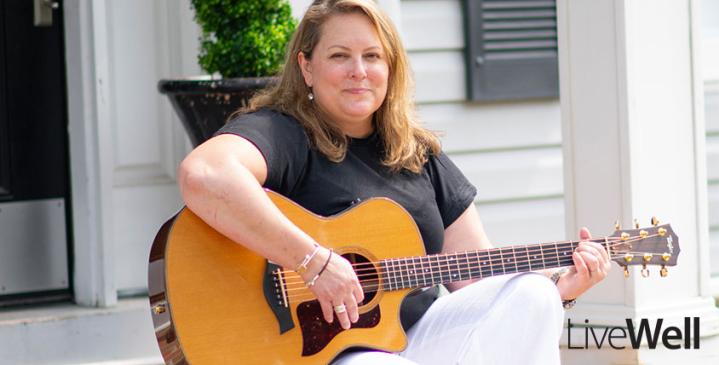

Pathology Screening After Hysterectomy Saves Mom
-
Friday, April 5, 2019
- |
- Cancer Care
Cervical cancer treated with radiation and chemotherapy
It’s often said that mothers hold their families together … but what if Mom gets cancer?
Stacey Scott, 42, from Lewisville, Ohio, finds great joy caring for her family, but she found herself needing extra care last year when she was unexpectedly diagnosed with cervical cancer.
“My whole world stopped,” Stacey said. “I remember thinking, ‘What? This can’t happen to me. I can’t get cancer. My son is graduating from high school; my daughter needs me. How am I going to do this?’ It was just plain scary and overwhelming.”
Dealing with symptoms for two years
Stacey had sought out her gynecologist because of numerous symptoms including lengthy menstrual cycles, severe cramping, unusual discharge, constant nausea and fatigue. She suffered with those symptoms for two years before finally undergoing procedures, including a hysterectomy, which led to her cancer diagnosis.
“Every time a cervix and uterus are removed during a simple hysterectomy for presumed benign conditions, they undergo certain testing,” explained Eugene Hong, M.D., radiation oncologist at the Genesis Cancer Care Center. “Results from that pathology identify unexpected cancers between two and five percent of the time. When that happens, the cancer is labeled as an incidental or occult finding, and it obviously comes as quite a surprise.”
Stacey’s hysterectomy pathology results showed she had stage 1b cervical cancer, meaning the disease was contained in the cervix. Genesis’ expert team of pathologists – Ejaz Ahmad, M.D., Irena Sheyn, M.D., and Jonathan Tongson, M.D., were involved in diagnosing and confirming Stacey’s cancer from her Pap test and tissue examination. The Genesis pathology department ensures cancer diagnoses, including 100 percent of all new malignant diagnoses, are reviewed by least two pathologists.
Warning signs of cervical cancer can be tricky
Stacey was surprised and shocked. Typically, abnormal Pap tests lead the way to finding cervical cancer, as early cervical cancers usually have no symptoms. Once cervical cancer grows invasive into nearby tissue, symptoms can include:
- Abnormal vaginal bleeding
- Unusual vaginal discharge
- Painful intercourse
Because cervical cancer is an aggressive cancer, early detection leads to the best cure rates. In fact, early detection of cervical cancer provides cure rates between 90 and 95 percent.
Stacey received a referral to a gynecological oncologist at a Columbus hospital, who recommended treatment at the Genesis Cancer Care Center. Her team of cancer specialists crafted a personalized package of treatment involving external beam radiation therapy, chemotherapy and an internal high-dose radiation therapy called brachytherapy.
“I ended up having five rounds of chemotherapy, 25 doses of radiation therapy and two doses of internal radiation. I went five days a week for five weeks in a row – and I did not miss a single appointment,” Stacey said.
Fighting to stay in treatment
Stacey’s perfect attendance to her treatment appointments did not come easily – she fought to make it through each day of travel and treatment, and she even considered giving up at one point. Living in Lewisville meant a one hour and 20-minute drive each day, each way. With a busy working family, Stacey determined to make the drive by herself, except for Mondays when she had both radiation and chemotherapy and leaned on family and friends to drive her. The drive became more difficult as the accumulative effects of treatment grew heavier.
“The first week, I started feeling drained, sweaty and constantly hot,” Stacey said. “The second week got worse. By the third week, nausea, fatigue and sickness were horrible. I was so weak, I could barely shower. I also got thrush from the chemo. My mouth was full of sores and I couldn’t eat real food. The fourth week, my muscles and intestines couldn’t hold things in any longer. The drive to Genesis felt so long, and I’d have to stop at every restroom along the way. It was awful. Every muscle hurt. I wanted to give up. In fact, I went to my cancer nurse navigator and told her, ‘I just can’t do it anymore. I’m done.’”
Annette Barr, BSN, RN, CGRN, OCN, cancer nurse navigator at Genesis, remembers that conversation well. “Treatment is not simple, and people often want to quit when they’re feeling overpowered by the side effects,” Barr said. “When that happens, I help them remember why they started treatment in the first place. There’s obviously a reason for choosing to fight the disease – and if the reason is still there, there’s still reason to fight.”
Making accommodations so patients are comfortable
Barr’s pep talk gave Stacey a boost of motivation to continue treatment. Next, Barr connected Stacey with tactics to lighten the load of cancer treatment.
“I encouraged Stacey to take opportunities for additional support (like receiving extra IV fluids toward the end of the week) and to approach her battle one day at a time,” Barr said. “Plus, we talked with physicians and they modified medications to help with side effects. Like many of our patients, Stacey is independent, strong and resilient, but it’s important to realize there are times to allow others on the journey with you.”
Barr also collaborated with the American Cancer Society and Cancer Concern Coalition of Morgan, Muskingum and Perry Counties to gift Stacey with hotel accommodations at the Hampton Inn for the last few nights of her treatment. This enabled Stacey to avoid the long drive at her most exhausted state. Not only did this surprise make her last days of treatment much more pleasant, Stacey felt like they made completion of treatment possible.
“Our best outcomes happen when therapy is completed as scheduled, and I didn’t want her to look back and regret not finishing,” said Barr. “And she did it! She showed power and strength and courage to finish every day. She’s an amazing role model for her daughter and son.”
Treatment involves medicine and compassion
Likewise, Stacey praises the Genesis cancer team.
“I know I just met them when I started treatments, but in five weeks it felt like they were family. The doctors, nurses and radiation folks are absolutely wonderful. I could call any time and they’d talk me through what I was feeling, and the doctors would call me personally to check in,” Stacey said.
Checking out of the Hampton Inn and Genesis Cancer Care Center’s treatments, Stacey celebrated her treatment completion – and that fact that she was cancer-free!
Today, Stacey continues serving her family. Her son recently walked in his high school graduation, and her daughter moved out of the house. Family remains central and the “To Do” lists remain long, but now Stacey has advice for other busy moms out there who may brush aside their own health concerns.
“You can’t take life for granted,” said Stacey. “As soon as you have a symptom, get it checked out. Your life depends on it.”



